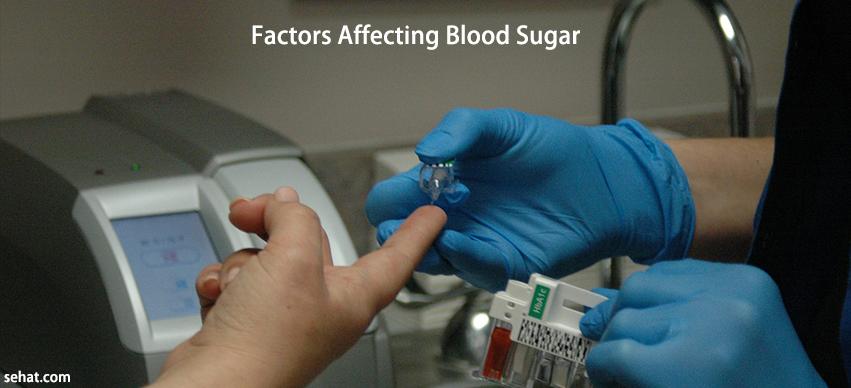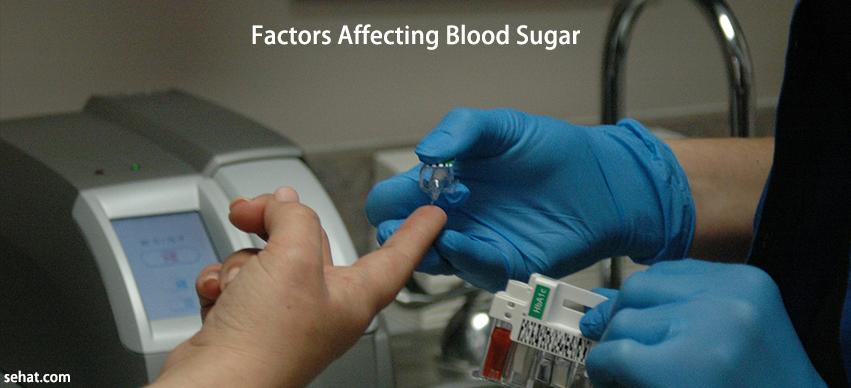How Communities Are Changing the Way We Think About Aging in..
8 Min Read


Diabetes, more commonly referred as diabetes mellitus by doctors, is a health condition with a group of metabolic diseases wherein the individual has high blood sugar, either due to inadequate insulin production, or because of improper response by body cells to insulin, or even both. The general symptoms of diabetes are frequent urination, excessive thirst, and increasing hunger. Some other symptoms include unusual weight loss, weight gain, cuts and bruises that do not heal, fatigue, numbness and tingling in feet and hands, and male sexual dysfunction.
Blood sugar levels are crucial, whether or not you are a diabetic patient. It is always important to maintain healthy blood sugar levels and keep a record of the same to be on a safer side. For this, it is important to know about factors that can influence the blood sugar levels. Read on for more info.
During sickness with severe flu or cold, or pain, the body releases illness fighting hormones. Now these hormones have the tendency to push the blood sugar levels in either direction. This makes it more difficult to keep the levels in target range. As a precaution, consult your doctor about a “sick day planâ€. This way, you would be aware about what to do in case of illness. Talk about the medication procedure and try to stick to your regular meal plan as much as possible. Also, monitor your blood sugar levels more often during the course of illness.

Smoking is, obviously, not good for any individual. However, for diabetes patients, cigarettes are specifically dangerous. Smoking can raise the level of blood sugar in the body. Moreover, it can also raise the risk of serious diabetes complications, like stroke, heart attack, and kidney failure.

The body shows fight or flight responses when under stress. This further releases hormones that are responsible for high blood sugar levels. Moreover, it is common for people under stress to be careless with regards their health. They tend to work for long hours, drink or eat less, and exercise too little. This further affects the blood sugar levels.

As a matter of surprise for many, alcohol can lead to low blood sugar levels soon after drinking and for as long as 24 hours later. Generally, it is advisable to limit alcohol to one drink daily for women and two daily for men. Furthermore, if you drink alcohol, it is always wise to consult your doctor about how safe alcohol consumption is for you. Avoid drinking on empty stomach. More importantly, try to monitor blood sugar. Check the levels before, during, and after the drink for up to 24 hours. Be cautious if you note symptoms of low blood sugar, like feeling nervous, blurred vision, headache, sweating, shaking, and unclear thinking.

The quality and amount of sleep can influence the blood sugar levels in the body. A good night’s sleep can be just what you need, more specifically if you have diabetes or are worried to get it. Improper sleep can drop down the body’s insulin sensitivity as compared to what is there in case of a full night’s sleep. Basically, not getting sufficient sleep can be a form of chronic stress on the body. So, any type of added stress can raise the blood sugar levels in the body.
Exercise and physical activity tends to make the body sensitive to insulin, thus lowering the blood sugar levels. This might require you to check your blood sugar levels more frequently. Also, check for low blood sugar l=during exercise. Furthermore, exercising in extremely cold or hot conditions can also change your body’s capability to absorb insulin. Consult your doctor to know about normal blood sugar levels before and after exercise. Also ask about the signs of low blood sugar to watch for. As a precaution, keep quick snacks at hand during exercise to handle low blood sugar levels. Also have water or sugar free sports drinks handy to stay hydrated.

Excessive weight and extra body fat makes it difficult to control blood sugar levels due to higher insulin resistance.

As per research conducted by many universities and health centres, it has been revealed that caffeine helps to lower the blood sugar levels, unless consumed with a lot of sugar.

Cold medicines, steroids, birth control pills, and other medications can interfere with the effectiveness of prescription diabetes medicines. This can further cause fluctuations in blood sugar levels. Besides, some supplements and natural remedies can also influence the blood sugar levels.
With the above factors being responsible for fluctuating blood sugar levels, it is important to follow some effective precautionary measures. The most important ones relate primarily to dietary changes.
Whether you are a diabetes patient or not, it is always better to go for whole grains, like barley, oat bran, and rye. These whole grains are packed with fibre and beta-glucan. Moreover, the soluble fibre in these grains keeps you fuller for a longer period of time.

Cinnamon can do a lot more than just adding flavour to your meal. This amazing herb causes a significant drop in fasting blood sugar levels. Besides, it stimulates secretion of insulin from the pancreas.

Adding nuts, like walnuts, almonds, and pistachios, loaded with healthy fats slow the absorption of sugar by the body. However, make sure to limit the amount of nuts eaten in one sitting as healthy fats also contain some amount of calories. Surprisingly, six almonds a=have calories equal to a teaspoon of butter.

If you are overweight, or on a weight loss regimen, avoid skipping meals during the day, especially breakfast. Rather, try to spread out the daily food intake. Instead of taking 2-3 large meals, go for 5-6 small meals a day. Furthermore, make sure to include two nutritious snacks between meals for better results.
Most importantly, anticipate the unexpected and keep healthy snacks handy to prevent your blood sugar from dropping to an extremely low level.